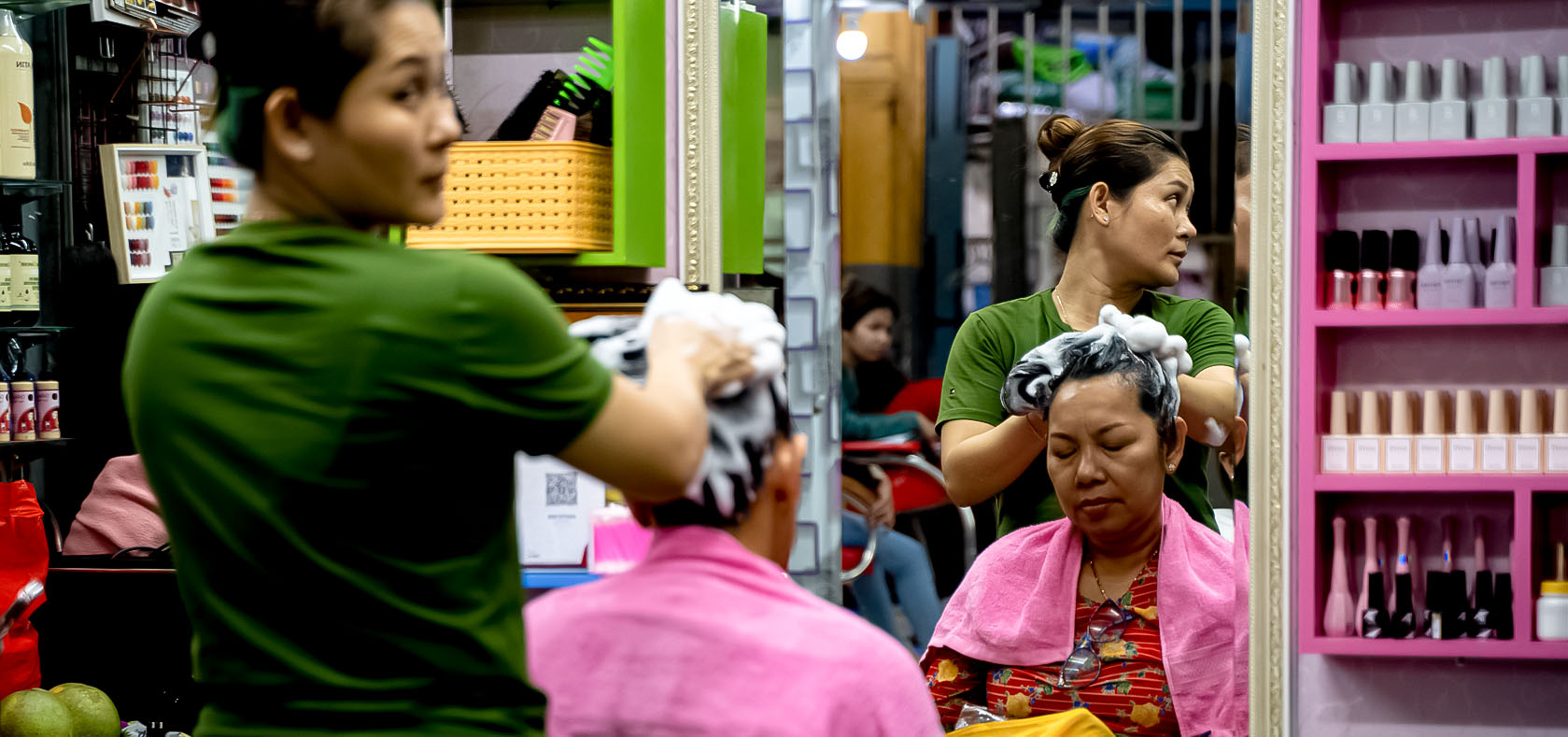Women are leading Covid recovery
Date:
Author: Sarah Knibbs
[This OP-ED originally published by Bangkok Post on 17 March 2023]

Three years after the pandemic was formally declared, the world is now firmly in the recovery stage. But the huge potential contribution of women's leadership is still being undervalued, under-resourced or overlooked altogether.
To be truly effective and inclusive, our recovery strategies must better prioritise the needs of women and girls: This means putting women at the heart of recovery efforts by national governments and international organisations, as well as more local initiatives.
It is now well established that women have been leading and transforming Covid-19 recovery efforts as community leaders and local first responders. Women-led civil society organisations (CSOs) have been providing emergency aid, psychosocial support services, assistance hotlines for survivors of gender-based violence, and legal services for women and girls. They have worked around lockdowns using innovative approaches and technology to make sure they reach vulnerable women in need, including in remote communities.
But despite the evidence that women-led CSOs are best placed to lead recovery efforts, funding for these organisations remains limited. Some of this is due to pandemic fatigue and overstretched aid budgets
Across the region, the average share of women in COVID-19 task forces is less than 15 per cent, even though increasing women’s participation improves performance by several measures.
Of course, many of the challenges faced by women in the Asia-Pacific region were around before the pandemic. Just 62 per cent of the region’s women are in formal work, compared with 79 per cent of men. And women hold only one in five positions of management or leadership in the private sector.
Regarding political leadership, women make up 36 per cent of seats in local government, and just 20 per cent in national parliaments. Gender-based violence, unequal access to healthcare resources and services, discriminatory social norms, and the burden of additional unpaid care work at home also disproportionately affect women and girls across the Asia-Pacific region.
"We will only recover fully from COVID-19 when we ensure that all sections of society are engaged.”
— Sarah Knibbs, Regional Director a.i. UN Women Asia-Pacific.
These inequalities worsened during COVID-19. We know that the pandemic exacerbated pre-existing inequalities for women across health, protection, education and livelihoods. We also know that without gender-responsive COVID-19 recovery approaches women and girls will fall still further behind, impeding global commitments to achieving Sustainable Development Goals.
To address some of these issues, UN Women, with generous support from the Government of Japan, has been running a programme called Gender-Responsive COVID-19 Prevention and Response, focused on Cambodia, Lao People’s Democratic Republic, Thailand, and Vietnam, from March 2022 to March 2023.
We have reached migrant women and their families in Cambodia who were deported home during the COVID-19 pandemic and helped them to start over. We helped communities in Southern Thailand recover from the health and financial impacts of the pandemic.
In Vietnam, survivors of domestic violence were able to seek help in safe spaces, sheltering from the pandemic and abuse while receiving psychological support. While in the Lao People’s Democratic Republic, villagers in remote areas were supported in accessing COVID-19 vaccines, and also had an opportunity to discuss women’s rights and the importance of sharing the daily workload.
Governments and partners, including the private sector, must take action to ensure women and girls are placed at the centre of COVID-19 recovery plans. Key steps to achieve this include the following:
Use data that is disaggregated by age and sex, to design policies and programmes that account for the needs of women and girls. There is now extensive data on how COVID-19 impacted women and girls specifically, and which responses were effective. This needs to be integrated into post-COVID-19 recovery plans.
Ensure women-led organizations have spaces to share their expertise and are included in wider decision-making. Women-led CSOs have proven themselves as gender-responsive first responders. Their input on related policies and programmes is essential.
"If women and girls are left behind, we will fail to achieve our collective goals for health, economic resilience and social protection.”
— Sarah Knibbs, Regional Director a.i. UN Women Asia-Pacific.
Provide them with more funding. Women-led organizations at the forefront of post-COVID-19 recovery still lack funding. More is needed to treat them as equal players. Provide them with more training. More opportunities to develop skills would improve the impact of women’s grassroots work.
Invest in livelihoods and vocational training programmes for women. This is critical to help women rebuild their lives and strengthen local economies. These should include closing the digital gender gap and investing in business and technical skills for women entrepreneurs.
We will only recover fully from COVID-19 when we ensure that all sections of society are engaged. If women and girls are left behind, we will fail to achieve our collective goals for health, economic resilience and social protection. Only through achieving gender equality and applying gender-responsive approaches to COVID-19 recovery can we build back better and stronger for the benefit of all.
About the author
Sarah Knibbs is the regional director a.i. of UN Women in Asia and the Pacific. Her work has primarily centred around addressing issues related to gender, violence against women, HIV, and youth, as well as sexual and reproductive health and rights.